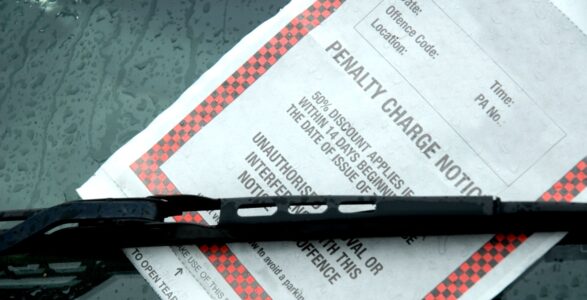Speeding Laws in the UK

Last Updated 20 September 2024 | Published 17 March 2017
Speeding Laws Update: Tougher Penalties Now in Force
Drivers, take note! Speeding laws have changed, and the penalties for serious offences are now much tougher. Magistrates across England and Wales have been given new sentencing guidelines designed to crack down on dangerous drivers, and anyone caught speeding could face severe consequences. This includes drivers of leased or hired cars, as they are responsible for any motoring offences, even if they do not own the vehicle.
What Are the New Penalties?
Fines Tied to Income: One of the key changes is the significant increase in fines for those caught speeding. Under the new laws, fines for serious speeding offences can now reach 150% of your weekly income, a sharp rise from the previous limit of 100%. For example, drivers caught travelling at 101 mph or more in a 70-mph zone will be hit with fines in this new, more severe category.
Minimum Fine and Penalty Points: The minimum fine remains at £100, accompanied by 3 penalty points on your driving licence. However, accumulating 12 points within a three-year period will likely result in a driving ban. For new drivers, those who have held their licence for less than two years, accruing 6 points could mean an automatic licence revocation.
Why the Change?
These updated penalties come after extensive consultation with lawmakers, road safety experts, and motoring groups who argued that previous fines and penalties did not adequately reflect the dangers of excessive speeding. The goal is to deter dangerous driving by increasing the financial and legal consequences for those who break the speed limit.
The Sentencing Council has emphasised that the new fines should reflect the seriousness of the offence, particularly in cases where drivers exceed speed limits by a significant margin. This move also aims to create consistency in sentencing across the country, ensuring that those who put lives at risk face appropriate punishment.
Additional Reforms:
The new sentencing guidelines, effective from 24th January, address not just speeding but also other areas of criminal behaviour. These include penalties for TV licence evasion, animal cruelty, railway fare evasion, truancy, and being drunk and disorderly. This comprehensive update marks the first major overhaul of sentencing guidelines since 2008.
The Impact of Stricter Sentencing:
Motoring groups, such as the RAC, and legal bodies like the Magistrates Association have welcomed these changes. Many believe that tougher financial penalties could prove to be a more effective deterrent than jail time for speeding offences.
The hope is that drivers will think twice before breaking the speed limit, particularly as the new penalties hit offenders where it hurts most—their wallets. The message is clear: speeding endangers lives, and those who continue to flout the rules will face much stiffer consequences.
What Does This Mean for Drivers?
Now more than ever, it is essential for drivers to monitor their speed and stay within legal limits. Whether you’re driving your own car, leasing, or hiring a vehicle, the responsibility to obey the law is yours. With these new penalties in force, driving recklessly or dangerously fast could cost you more than just a fine—it could result in losing your licence or a lengthy disqualification from the roads.
So, if you’ve been tempted to push the speedometer beyond what’s legal, now is the time to slow down.
Drive Smart and Within the Limits!
Looking to lease a car? At CVS Ltd, we offer flexible car leasing solutions
Back to all help and advice articles



